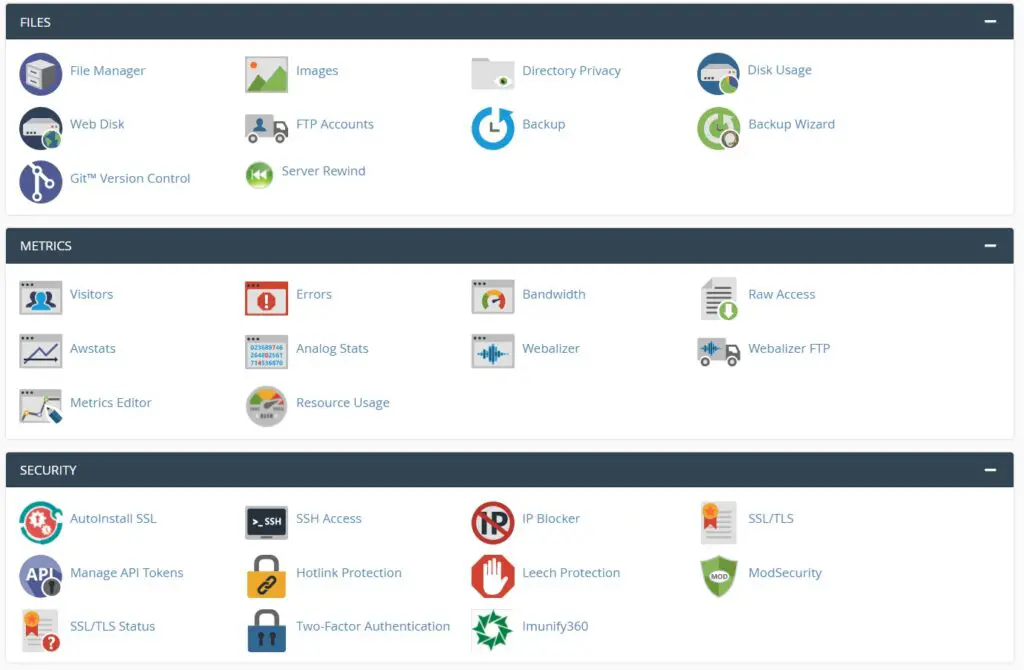Choosing the right web host for your blog has a significant impact on its potential. Like individual devices such as laptops or PCs, web hosting plans come with specific capabilities. These contribute directly to your blogs’ performance, reliability, and other characteristics.
Yet, choosing the perfect web host is becoming increasingly challenging. Web hosts know what potential website owners think they need and market products along these lines. The problem is, are you aware of what’s important when choosing a web host?
Knowing Your Needs is Important:-
Every website, including blogs, has varying needs that affect web hosting plan selection. For example, a simple, static website can typically get by with a cheap shared hosting plan. Running an eCommerce store often requires more powerful web hosting.
Blogs are a little more unique since the term is pretty broad. At the lower end of the spectrum, you have personal blogs that are little more than digital diaries. An affiliate marketing website with hundreds of content pages serving tens of thousands of daily visitors can also be considered a blog.
Knowing the type of blog you’re going to build will help you choose the best kind of web hosting plan to fit your needs.
Ask yourself:-
- Will you be running an application like WordPress, Joomla, or Drupal?
- Are there specific environments you need (e.g., PHP, Perl, Ruby on Rails)?
- Do you need to use a database?
- What kind of visitor volume do you estimate?
When asking yourself these questions, try to envision your blog one or two years down the line and consider that needs evolve.
Newbie Tip: Shared hosting plans are cheap and easy to manage. You can start on one of these and migrate to more powerful options later as your traffic volume and needs grow.
Choosing the Right Web Host: 8 Factors to Consider
Once you have a better idea of what you envision for your blog, it’s time to get down to the details. Having learned the hard way after running various websites and testing dozens of hosts, here are some of the essential web hosting factors I’ve discovered.
1. Web Host Performance and Reliability

-
Save
Web host performance isn’t the same as website speed. Instead, it refers to the responsiveness and overall quality of the web hosting server. Many factors influence website loading speed. However, the performance of your web hosting server depends on the web host alone.
Because of this, strong emphasis should go toward selecting a web host with quality servers. It’s one of the elements you have little ability to change. If you aren’t happy with the web host performance, your only option later will be to migrate to a new service provider – a time-consuming and potentially costly activity.
The problem here is that server quality isn’t something you can tell by looking at specifications alone. To gain a better idea of quality, check out a few reputable web hosting reviews.
Service Level Agreements
Make sure you take the time to check out Service Level Agreements (SLA) or Terms of Service (ToS). Reputable web hosting service providers often spell out a guaranteed uptime for their service, such as 99.,99% availability.
You can claim a refund if the service provider breaches this SLA or ToS agreement. Refund policy will depend on the individual web hosting service provider.
2. Resources Provided and Handling
As a rule of thumb, the more visitors a blog needs to handle, the more resources the hosting plan needs. At the most basic level, essential resources to consider are CPU, memory (RAM), and storage space.
How much of these resources you get will vary between web hosts. However, the type of web hosting plan also affects resource handling.
Shared hosting plans are often apparently generous in resource allocation. You’ll often see web hosts advertise “unlimited resources” on these plans. However, these resources come out of a common pool.
If another website on the server is hogging resources, your blog needs to wait until they become available. This method of resource handling can severely impact the performance consistency of your blog over the longer term.
Virtual Private Server (VPS) plans are more expensive but come with dedicated resource allocations. These are allocated to your website alone and will be available at any time. The permanent allocation means your website will perform much more reliably and consistently than one on shared hosting.
However, VPS plans are also more challenging to manage. Unless you opt for a fully managed VPS plan, you’ll need knowledge of server, operating system, and network configurations to properly handle your VPS
3. Subscription and Renewal Price of Web Hosting Plans

-
Save
By now, you’ll have realized that as the plan types progress, so too does price increase. Basic shared hosting generally costs between $3 to $7.50/mo. VPS plans go up to an average of $15.50 to $28.05/mo.
You also should be cautious of advertised prices when looking at web hosting providers. Many offer steep discounts for first-time users, making it seem like their prices are some of the lowest around.
The reality is that these promo prices are often valid only for the initial sign-up periods. For example, if you sign up for a two-year plan, the promo price is only for that duration. Once it expires and you need to renew the plan, prices will steeply increase.
This increase will often see you paying double or more compared to your initial sign-on rates. Always be aware of the renewal pricing when choosing your web hosting plan.
Refunds: When considering cost, also take into account the refund policies afforded by the service provider. Most will offer standard 30-day money-back guarantees, but some extend the length significantly.
4. Security Features
One area often overlooked in web hosting is the security options provided. While web hosting service providers will share security information, keep in mind that this refers to the security of their servers, not your website.
Website security usually needs your attention, but some hosts extend additional tools that can help. For example, they might offer a complimentary subscription to Immunify 360, a security suite that helps defend against viruses and other malware.
In addition, backup features count towards the overall resilience of your website. Not all web hosts are willing to offer comprehensive backup features since it increases their resource burden significantly.
Consider if the web host you’re looking at offers manual or automated backups, the length of the backup cycles, and any other disaster contingency plans that will help you deal with security issues.
5. Usability and Control Panel

-
Save
When comparing web hosting plans, it’s easy to focus on the specifications while overlooking usability. Website management often depends on graphical interfaces that the web host provides. The most common web hosting control panel used is cPanel.
Unfortunately, due to the rising cost of cPanel licensing, many web hosts have begun looking for alternative options. While an alternative may help keep costs manageable, not all control panels are as easy to use or functional as cPanel.
You need to exercise caution regarding what type of control panel the web hosting service provider offers. Some have developed competent control panels, while others have adopted other commercial control panels that are not entirely usable.
6. Customer Support
Regardless of your expertise in technical matters, you will eventually need the assistance of your web host. It could be for anything from billing assistance to upgrading your hosting plan or even an unresponsive server.
The thing to keep in mind is that offering customer support is an expensive undertaking for web hosts. In some cases, they’ll try to manage costs by limiting the support available. While this is reasonable, it becomes a problem when taken too far.
While it may be challenging to gauge the quality of customer support a web host offers, perusing the options available for assistance might help. For example:
Knowledge base – Usually provided as a section on their website containing information used for self-help, a comprehensive knowledge base can be a lifesaver. At times, you can use it for assistance in essential areas like simple troubleshooting or even as a “how-to” guide.
Email support – Generally always available, email support is good for the paper trail it leaves. However, it’s less transparent than a ticketing system that’s can comprehensively track response times, levels of assistance required, urgency, and more.
Live chat – 24/7 live chat assistance provides you direct access to a customer support agent. It’s helpful in some cases but expensive to maintain. Because of this, many hosts are moving from live agents to chatbots that are often far less helpful.
Phone support – For the same reasons as the gradual decrease in live chat assistance, phone support isn’t typically available except for more expensive web hosting plans. They give you direct access to support staff at all times.
Messenger services – Some web hosts have trimmed support costs to the bone, cutting all support channels except for essential messenger services. This type of support can be highly frustrating when in serious need, especially if you don’t use that particular messenger app.
7. Scalability
If you’re looking at cheap shared hosting for your website, thinking towards VPS plans or even dedicated servers might seem a bit far-fetched. Yet, websites can grow to substantial traffic volumes and capacities, possibly requiring plan upgrades.
Although most web hosts have a range of hosting plans available, not all provide easy upgrade paths. The situation is especially true if you’re migrating between plan categories like shared to VPS hosting.
Aside from noting the scope of plans available, check to see the upgrade process between those plans. Ideally, the upgrade path will be as simple as notifying the web host who will take care of everything on your behalf.
8. Email Hosting
Most take for granted that web hosting plans will allow you to use custom domains for email hosting. However, this isn’t always the case. In rare cases, web hosts offer plans that don’t support email. If that’s the case, you will need to purchase email hosting separately. Although not difficult to handle, it does mean unnecessary additional costs on your part.
You should also note email policies, especially if you plan to send marketing emails. Most web hosts impose strict volume policies to avoid getting their IP addresses blacklisted for spam. If you find those overly restrictive, consider using a separate email marketing service instead.
Conclusion
Web hosting service providers are like most other businesses. They’ll advertise their strengths while playing down potential disadvantages. Being aware of what to consider in a web host is vital to the overall health of your website.
Signing up with the wrong host isn’t the end of the world, but you’ll end up frustrated before eventually spending time and money migrating to a new service provider. Be aware of your needs and the essential web hosting areas on which to focus.
-
Save

